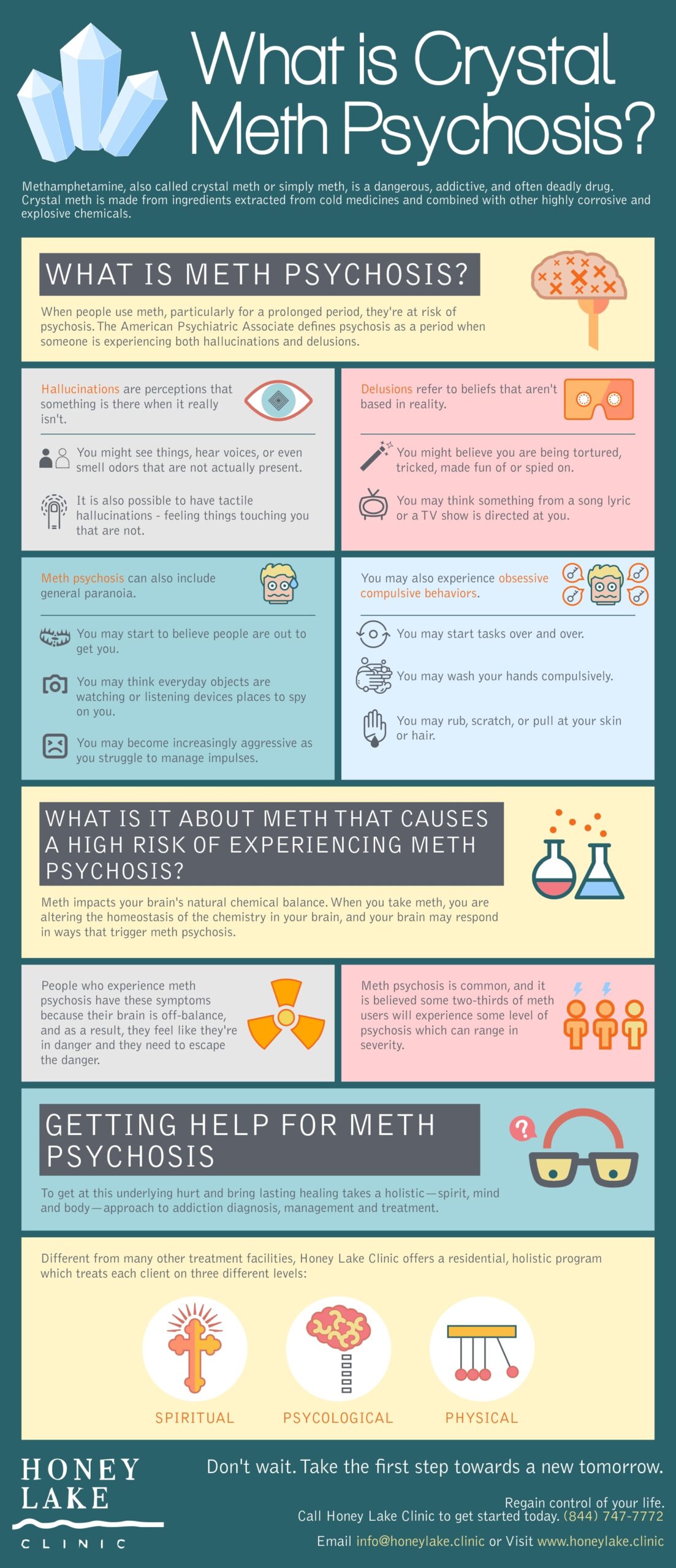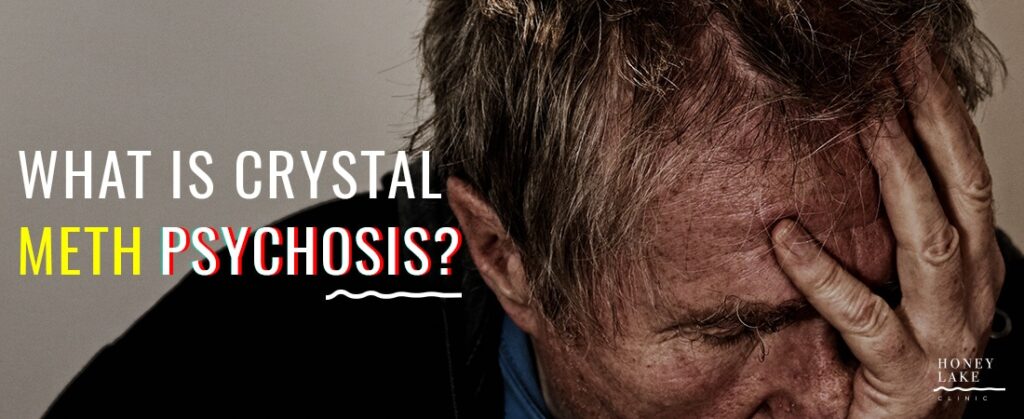What is Crystal Meth Psychosis?
Have you or your loved one experienced hallucinations, like seeing things or hearing things? Or believe you have been tortured or someone’s out to get you?
Methamphetamine, also called crystal meth or simply meth, is a dangerous, addictive, and often deadly drug. Crystal meth is made from ingredients extracted from cold medicines and combined with other highly corrosive and explosive chemicals.
Meth is a stimulant, which means when someone takes it they experience a euphoric high because of a flood of dopamine in their brain. One possible outcome is a condition called Meth Psychosis.
What is Meth Psychosis?
When people use meth, particularly for a prolonged period, they’re at risk of psychosis. The American Psychiatric Associate defines psychosis as a period when someone is experiencing both hallucinations and delusions.
Hallucinations are perceptions that something is there when it really isn’t. You might see things, hear voices, or even smell odors that are not actually present. It is also possible to have tactile hallucinations—feeling things touching you that are not.
Delusions refer to beliefs that aren’t based in reality. You might believe you are being tortured, tricked, made fun of or spied on. You may think something from a song lyric or a TV show is directed at you. A common delusion people experience is thinking they are being followed by the police when they’re not.
Meth psychosis can also include general paranoia. You may start to believe people are out to get you. You may think everyday objects are watching or listening devices places to spy on you. You may become increasingly aggressive as you struggle to manage impulses.
You may also experience obsessive compulsive behaviors. You may start tasks over and over. You may wash your hands compulsively. You may rub, scratch, or pull at your skin or hair.
What is it about meth that causes a high risk of experiencing meth psychosis?
Meth impacts your brain’s natural chemical balance. When you take meth, you are altering the homeostasis of the chemistry in your brain, and your brain may respond in ways that trigger meth psychosis.
When you take meth, it releases a huge and unnatural amount of dopamine into the brain all at one time. Then, your natural dopamine reserves become depleted, and your body becomes unable to make more. As you continue doing meth, it overstimulates the temporal lobe of the brain, which is why it creates meth psychosis.
The amygdala of your brain is also affected. When it’s stimulated, it raises fear levels and makes you think you are in survival mode.
People who experience meth psychosis have these symptoms because their brain is off-balance, and as a result, they feel like they’re in danger and they need to escape the danger.
Meth psychosis is common, and it is believed some two-thirds of meth users will experience some level of psychosis which can range in severity.
Getting Help for Meth Psychosis
Substance abuse doesn’t happen in a vacuum. For real healing and recovery, the underlying causes of substance abuse must be addressed. And this is vitally important when you’re choosing a treatment program or facility.
To get at this underlying hurt and bring lasting healing takes a holistic—spirit, mind and body—approach to addiction diagnosis, management and treatment.
Many programs focus narrowly on what can be addressed from a medical perspective. Research, however, continues to show us that spirituality positively influences recovery in many ways. Although this is well known, and medical and behavioral health professionals have been saying addictions are holistic illnesses that need holistic treatment, the majority of programs still refuse to look to God in the healing process.
Different from many other treatment facilities, Honey Lake Clinic offers a residential, holistic program which treats each client on three different levels:
- Spiritual: Helping you grow closer to God, apply His truths, and discern His will for you.
- Psychological: Teaching decision-making skills to help you cope with underlying struggles.
- Physical: Using therapy and medication, if needed, to re-circuit or renew your mind.

At Honey Lake Clinic, our experienced doctors and staff will help you or your loved one bring spiritual power and clearer psychological understanding to recovery.
